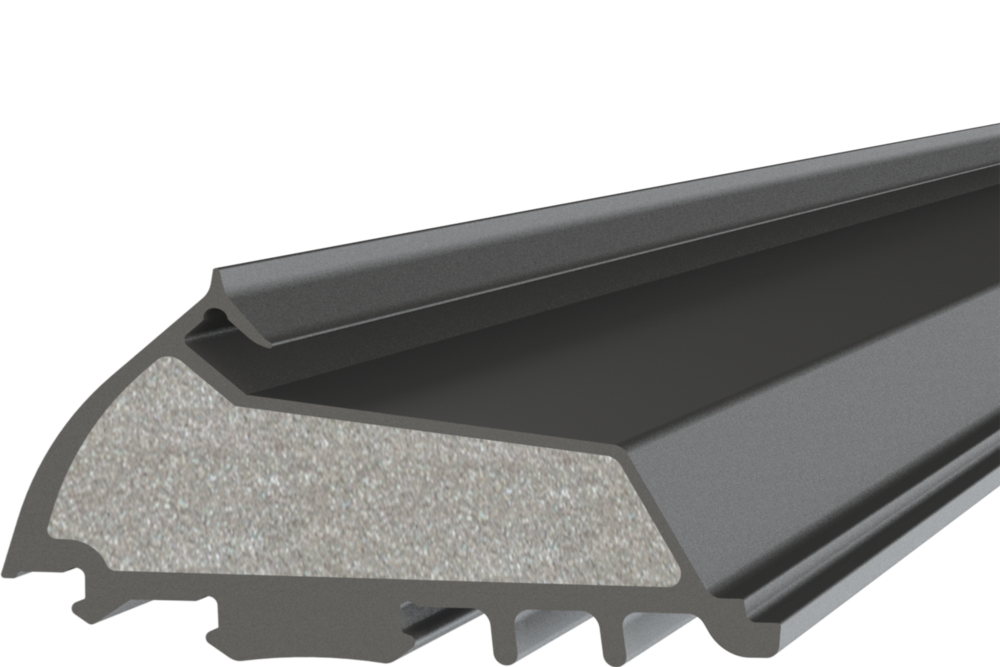
Deventer : sécurité et étanchéité pour les fabricants
Joints : valeur importante de la conductivité thermique pour les fenêtres en aluminium / Discussion sur la validité / La densité des matériaux est également au centre des préoccupations / L'Institut Fraunhofer confirme les valeurs de Deventer / Profilés d'étanchéité en mousse avec une bonne isolation thermique / Stabilité dimensionnelle permanente / Solutions TPE sur mesure / Contribution à la durabilité
Leinfelden-Echterdingen - La valeur de conductivité thermique des joints joue un rôle important dans le calcul de la valeur Uw des fenêtres en aluminium et de la déclaration CE correspondante. Les fournisseurs de systèmes tirent généralement les informations nécessaires à cet effet de tableaux dont les valeurs sont basées sur des échantillons de matériaux normalisés. Depuis environ un an, les acteurs du marché discutent de leur validité cruciale. Ces discussions portent sur l'effet de la densité des matériaux moussés. Deventer, spécialiste des profilés d'étanchéité en élastomères thermoplastiques (TPE), s'est penché sur cette question d'actualité.
En savoir plus
“Our values were and still are valid,” assures Managing Director Mike Piqeur. Following customer requests, special tests commissioned at the Fraunhofer Institute have confirmed this once again. Reliable values are only possible when goods samples come directly from production. It must be guaranteed that the material properties of the gaskets match the tested properties exactly. Deventer, as a member of the Roto Window and Door Technology Division (FTT), considers this to be “a matter of course”.
In general, a gasket has to be flexible, robust and highly insulating at the same time. However, this requires the right raw material to be selected and the gasket to foam in the best possible way. The usual density of foamed areas is between 0.6 and 0.75. With the highly resilient and durable profiles from our own range, a value of 0.6 is achieved on a regular basis. According to proof from the Fraunhofer Institute, TPE usually achieves much lower, i.e. better, thermal conductivity values than other conventional raw materials of the same density.
Piqeur decisively rules out practical utilisation of foam sealing profiles with a density of less than 0.6. When foaming, you always reach the point when the gasket loses its shape. However, this is precisely what must not happen. By the same token, exceeding a certain material density is also detrimental for the thermal insulation effect. Thanks to its many years of experience in producing TPE gaskets, Deventer is always able to offer customers tailored solutions with valid thermal conductivity values. “In this way, we can ensure that system suppliers and metal constructors are on the safe side,” highlights the managing director.
Another benefit of the TPE range is also becoming increasing popular on the market: the possibility of separating the gaskets from aluminium without leaving any residue behind. This supports the industry’s systematic recycling efforts. For Piqeur, this is a crucial component in a coherent sustainability concept.

